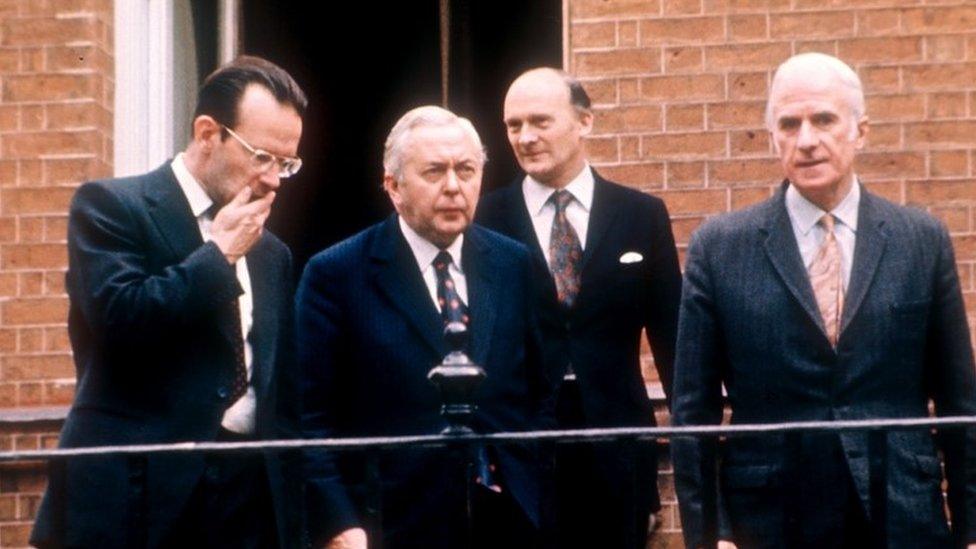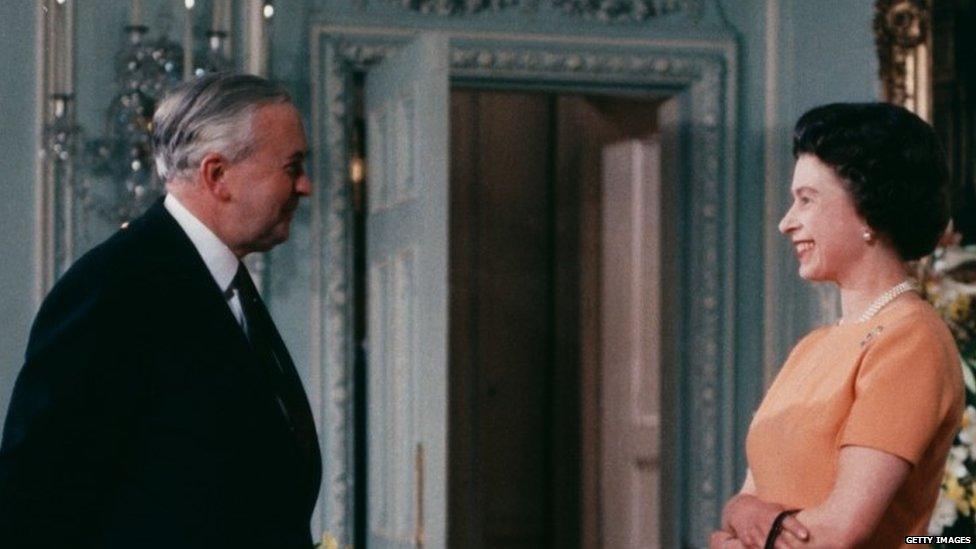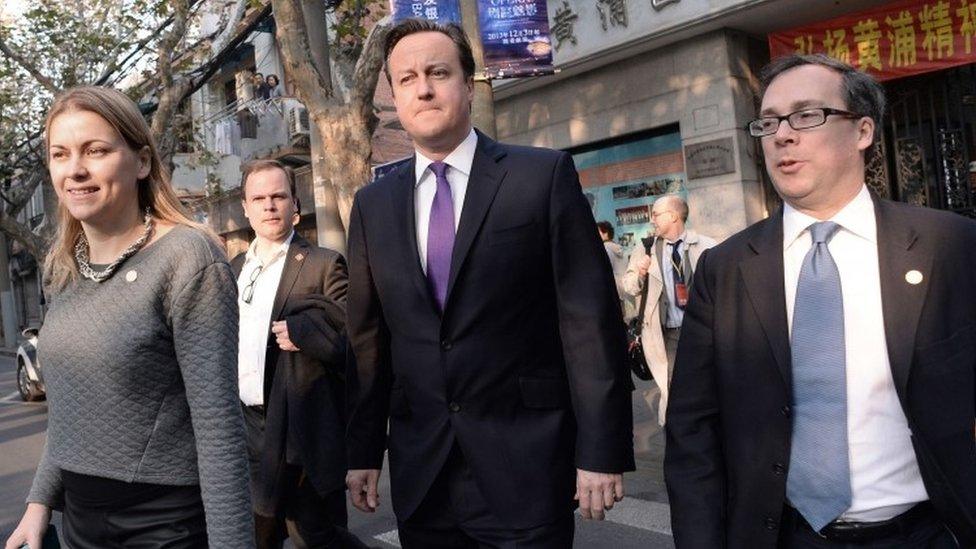Cameron honours 'not like Lavender List', says ex-Wilson aide
- Published

Joe Haines (left) was one of Wilson's closest confidants
Harold Wilson's resignation honours were far "more notorious" than anything reportedly proposed by David Cameron, his former press secretary has said.
Mr Cameron has been criticised for reportedly nominating 48 of his former aides and party donors for awards.
But Joe Haines said the former Labour PM's so-called Lavender List of honours in 1976 "trumped it in notoriety".
In a letter to the Times, he said some of those honoured were investigated for fraud and one went to prison.
There have been calls for Mr Cameron's successor, Theresa May, to intervene after the Sunday Times published leaked details of people it said were being proposed for honours by the outgoing PM.
Opposition parties criticised the alleged list, said to include ex-Downing Street staffers and EU Remain campaigners, saying it smacked of "cronyism".
Downing Street has said any interference on its part in the process would set a "bad precedent".
It has said the normal procedures will be followed, with individuals recommended for awards vetted by a committee made up of former civil servants and parliamentarians and proposed peers scrutinised by the House of Lords Appointments Commission.
'Famous or infamous'
Controversy has surrounded the honours system since its infancy, with Mr Wilson among leaders accused of using it to reward friends for political and financial favours.
Mr Wilson's resignation honours list in 1976 caused a scandal after it rewarded some businessmen who were felt to be against the Labour Party.
Mr Haines, one of Mr Wilson's closest aides when he was in power, refused a peerage after Mr Wilson's unexpected exit from Downing Street.

All honours are formally conferred by the monarch
In a letter to the Times written in response to the outcry over Mr Cameron's alleged list, the former journalist said the reason he had given at the time was that he wanted to abolish the House of Lords.
But he said the truth was that he did not want to sit alongside some of those proposed for ennoblement by Mr Wilson, in what was dubbed the lavender list because of the colour of the paper an initial draft was reportedly written on.
"It has been suggested that David Cameron's resignation honours list was even worse than Harold Wilson's famous, or infamous, lavender list," he wrote.
"Mr Cameron's list is more extensive but I think the Wilson list trumped it in notoriety.
"After all, one of the recipients, Sir Eric Miller, committed suicide as the Fraud Squad moved in on him, another, Lord Kagan - into whom I had warned Wilson the Inland Revenue were inquiring — went to prison."
'Not being celebrated'
Mr Haines went on to question Mr Wilson's overall track record for awarding peerages.
He claimed Rudy Sternberg an Austrian-born industrialist who became a life peer in 1975 was "probably a Russian spy" while it was said Lord Brayley - a businessman who briefly became a defence minister before resigning amid questions about his share dealings - "not only could not write a speech but could not even read those written for him".
He concluded: "So I think Wilson's list wins this particular contest. Of course, we don't know what the future holds for Mr Cameron's nominees."
Former adviser to David Cameron on why he turned down his honour
It is unclear when Mr Cameron's official resignation honours list will be published or how many people on it will be recommended for peerages.
A former adviser to Mr Cameron who has himself turned down an honour said he would like to see more people recognised for entrepreneurialism rather than having served in government.
"I was offered mine for working in Downing Street... I'd like to get one for running a company one day," Rohan Silva told Radio 4's Today programme.
Only 1% of awards in recent years, he said, had gone to entrepreneurs and while there were three committees looking at awards for public service and politics there was only one devoted to the economy.
"I think the honours system matters and the fight that is happening over this honours list shows how much it matters to people who gets an honour and who does not," he added.
"I think the real scandal about our honours system over the last years and decades is how few entrepreneurs - people who take risks and build companies - get honours."
- Published1 August 2016
